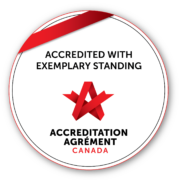Menno Hospital – 16.01 Application Renewals
To: All Menno Hospital – HEU Members
From: Jessy Manhas
Date: December 5, 2024
Re: Article 16.01 Application Renewals
__
FACILITIES SUBSECTOR COLLECTIVE AGREEEMENT
It’s time to update your 16.01 applications. Many are no longer relevant and require updating.
Under the Facilities Subsector Collective Agreement a part-time or full-time team member may indicate to the Employer that they wish to relieve in another position should work of less than ninety (90) calendar days arise.
Please complete the 16.01 form with your preferences, if you are interested in continuing in a 16.01.
NEW FOR 2025: You can complete this form online. Click here to submit the 2025 form for Menno Hospital staff.
All previous forms will be discontinued on January 01, 2025 so please submit your new form to the Staffing Office prior to December 23, 2024.
Thank you,
Jessy Manhas
Manager of People & Culture
604-851-1346










